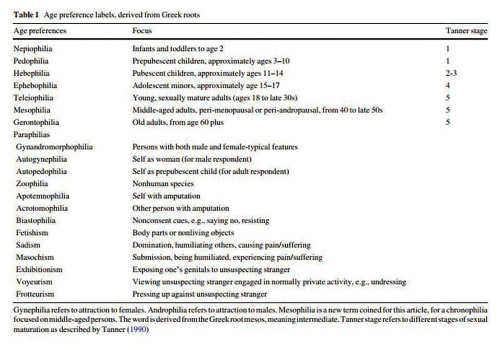Sexuality is far more complex than we thought

by Victoria Backle
Staff Writer
We all know the common fetishes, don’t we? We know there are people out there who genuinely enjoy a nice pair of feet (a podophiliac) or someone who is into being humiliated (a masochist); but is it common knowledge to know what a zoophiliac is? Or an acrotomophiliac?
It’s not common knowledge, but let me explain why it should be. The United States, in comparison to all the industrialized countries in the world, falls among the last in sexual education and comfortable conversations about sex in general.
This is an important fact, because while our country is too shy, or perhaps too conservative, to talk about sex at the dinner table, our country is not shy to talk about sexual identity when it comes to the LGBTQ community.
In fact, the community itself is a giant magnet of conservative dread. It’s the community that gets all the backlash of the USA’s sexual repression. It’s the community that is talked about in both political parties on a frequent basis. Why?
Maybe it’s because children (and adults) in this country are not raised with a sense of sexuality. Or maybe it’s because we aren’t being taught that there are truly sick people out there, for example with nepiophilia, an attraction to infants under the age of two, and are instead being taught that LGBTQ people are the epitome of sexual perversion.
Dr. Michael Seto, a forensic psychologist and an associate professor at the University of Toronto, has focused largely on human sexuality in his research. His most recent work, Archives of Sexual Behavior, discusses the complex web of sexuality and how defining others as gay, straight or bisexual is too shallow a label.

Seto has a diverse system of pinpointing one’s sexuality from the age one desires, to sexual fantasies, to gender.
According to Seto, “All of us have multiple sexual orientations, rather than a single sexual orientation, across a variety of different dimensions."
For example, most of us are teleiophilic, preferring sexually mature middle-aged adults, whether or not our identity is gay or straight. Most of us have sexual fantasies which, believe me, has a name. Finally, of course, we all have a preferred gender, or perhaps we don’t and we are sexually open to all gender expressions.
So, Seto’s conclusion is that identifying as gay or straight is really only scratching the surface of one’s sexuality. Remember how hard it was to come out of the closet? Well, that was our very first step into discovering our sexual identities.
It is truly difficult to live in the U.S. and be sexually aware. We are sheltered from a young age, taught about the birds and the bees, and in many states through puberty we are taught only abstinence.
It’s a struggle to grow up and realize that we have deepest, darkest fantasies, but let’s just remember that all of us have these fantasies. The nun who hit your knuckles with a ruler for looking at your classmate’s chest? She has fantasies. Your mom after grounding you for finding your porn collection? Sorry, but she does too.
Maybe if sex was less stigmatized, we wouldn’t have to feel so guilty for wanting it. Despite where our desires take us, as long as we’re all practicing sex in a safe and consensual way, then we’re doing it right.
Try telling that to your nearest sexually conservative friend.





